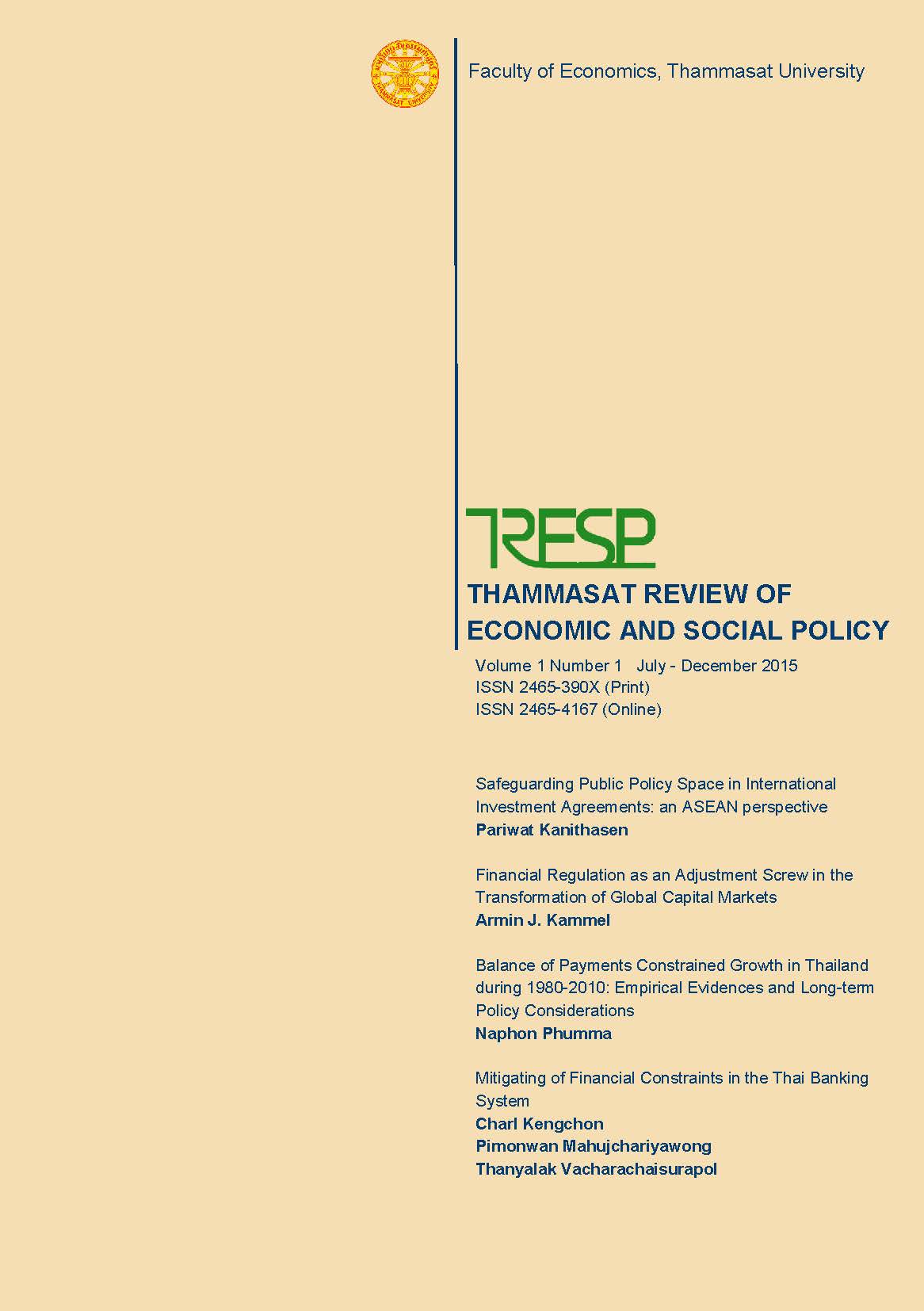Balance of Payments Constrained Growth in Thailand during 1980-2010: Empirical Evidences and Long-term Policy Considerations
DOI:
https://doi.org/10.14456/tresp.2015.3Keywords:
Thirlwall’s Law, Balance of Payments Constrained Growth Model, Thai Economic GrowthAbstract
This paper aims to explore whether the demand-oriented approach is able to explain the Thai economy from the 1980s onwards. In particular, it is going to empirically test whether the Balance of Payments Constrained Growth Model – the so-called Thirlwall’s law – can estimate Thai economic growth rates from 1980 to 2010. Not only does the paper prove that Thirlwall’s law can explain the Thai economy, but it also shows that the extended Thirlwall’s law is better than the original model. The results suggest that international trade is important for the economy because it can relax the balance of payments constraints and hence lead to economic growth. However, engaging in international trade is not equivalent to free trade. Policymakers need to keep in mind that resistance to free trade in order to develop some crucial industries may yield better long-run ability to meet export demand.
References
Atesoglu, H.S. (1993-94). Exports, Capital Flows, Relative Prices, and Economic Growth in Canada. Journal of Post-Keynesian Economics, 16(2), 289 – 297.
Bairam, E. (1988). Balance of Payments, the Harrod Foreign Trade Multiplier and Economic Growth: The European and North American Experience, 1970 – 85. Applied Economics, 20(December), 1635 – 1642.
Doner, R. F. (2009). The Politics of Uneven Development: Thailand’s Economic Growth in Comparative Perspective. New York, USA: Cambridge University Press.
Dixon, C. (1999). The Thai Economy: Uneven Development and Internationalisation. London, UK: Routledge.
Gregory, A. & Hansen, B. (1996). Residual-Based Tests for Cointegration in Models with Regime Shifts. Journal of Econometrics, 70, 99-126.
McCombie, J.S.L. (1997). On the Empirics of Balance-ofPayments-Constrained Growth. Journal of PostKeynesian Economics, 19(3), 345 – 375.
McCombie, J. S. L. & Thirlwall A.P. (2004). Essays on balance of payments constrained growth. Theory and evidence. London: Routledge
Thirlwall, A. P. (1979). The Balance of Payments Constraint as an Explanation of International Growth Rate Differences. Banca Nazionale del Lavoro Quaterly Review, 128, 45-53.
Thirlwall, A. P. (2011). Balance of Payments Constrained Growth Models: History and Overview. PSL Quarterly Review, 64(259), 307 – 351.
Thirlwall, A. P. & Hussain, M. N. (1982). The Balance of Payments Constraint, Capital Flows and Growth Rate Differences between Developing Countries. Oxford Economic Papers, New Series, 34(3), 498 – 510.



